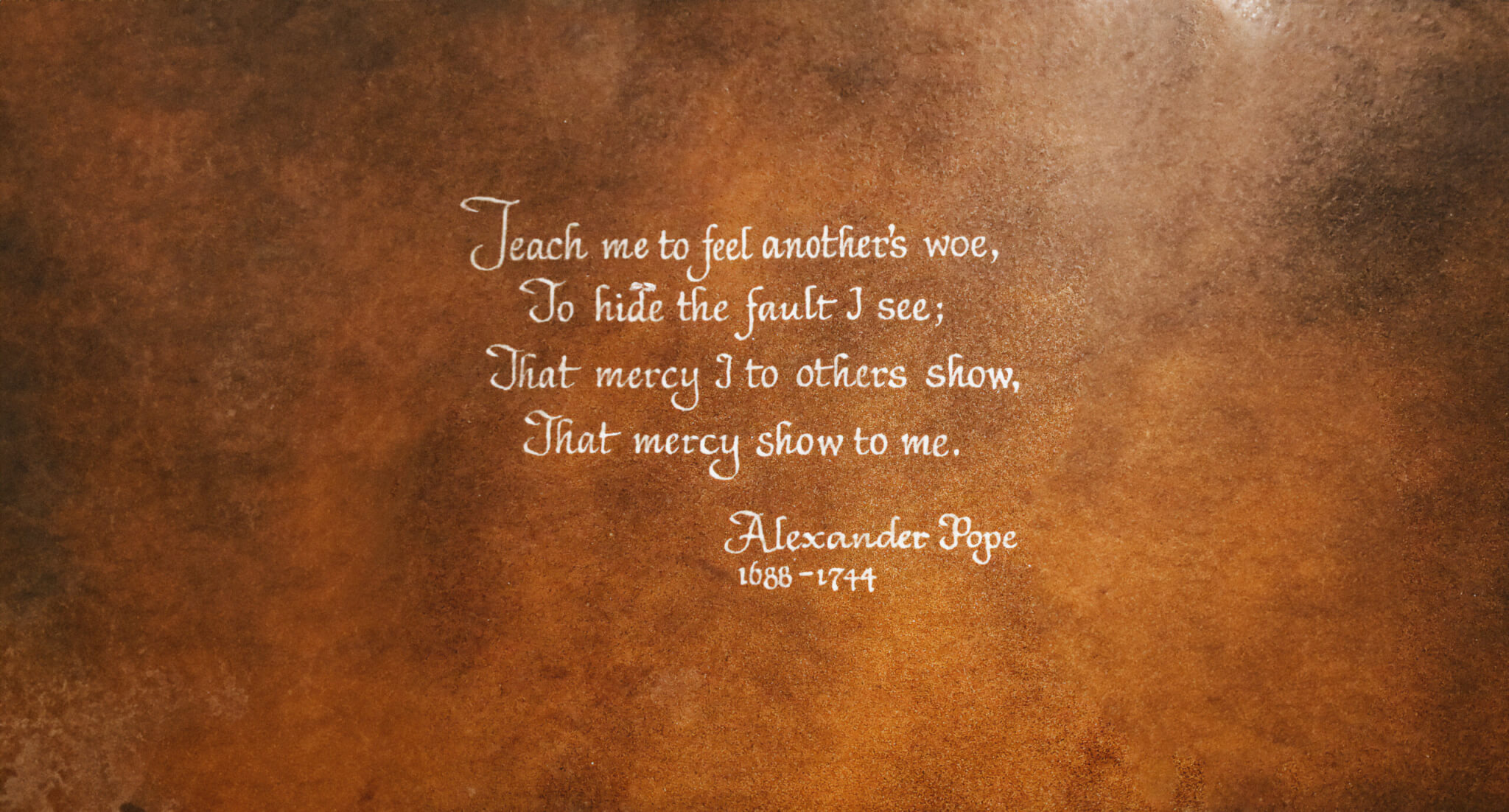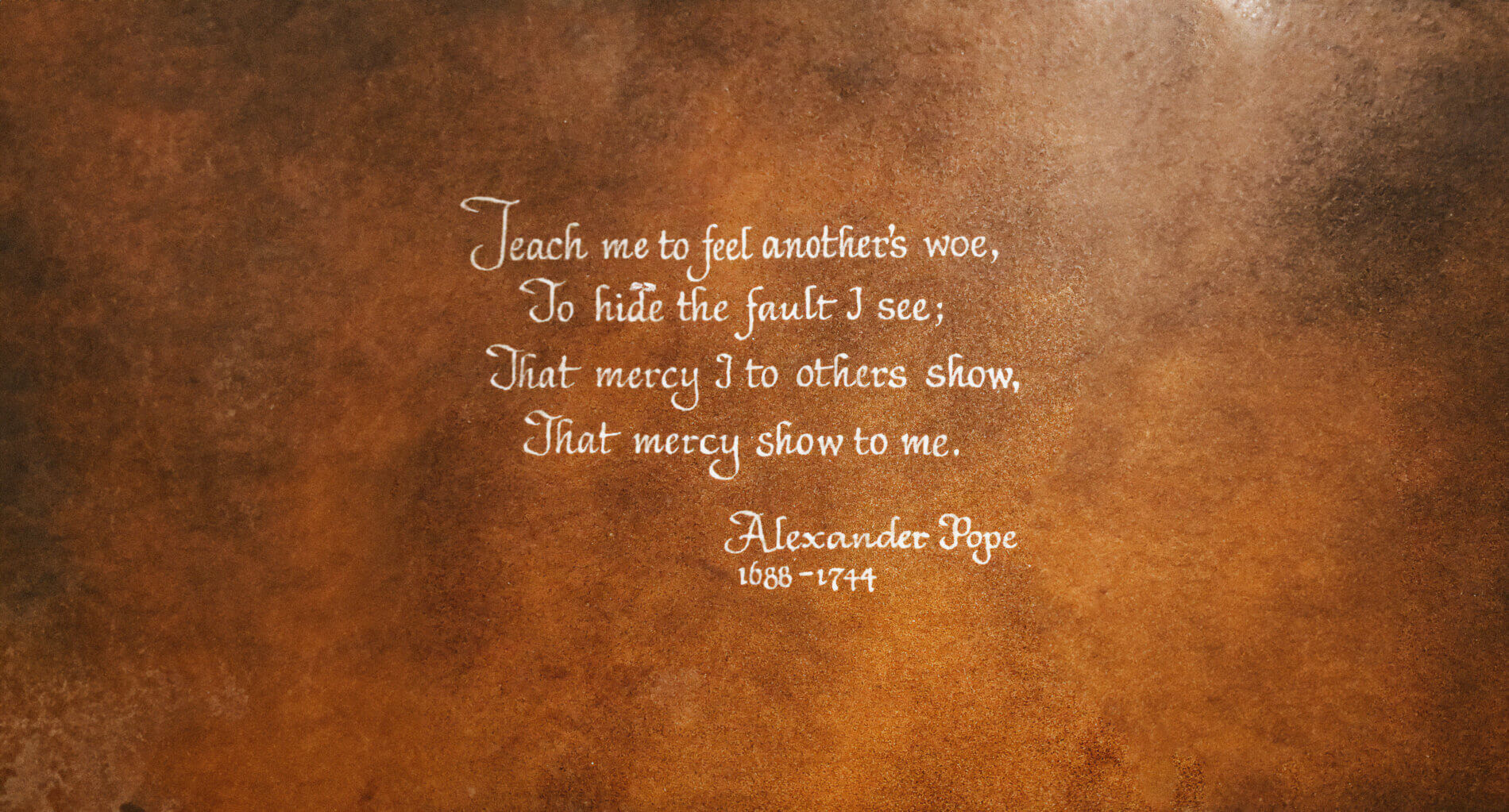

|
|
Alexander Pope’s “The Universal Prayer” offers a neoclassical take on the Lord’s Prayer. The second stanza confesses that God, the “Great First Cause,” is good, if not well understood. By the fourth stanza the speaker finds motivation in his conscience more than the desire to avoid punishment or pursue reward.
Finally, we arrive at the bolded stanza that Mary Holdsworth Butt chose for three sites in the Frio Canyon. The speaker asks God to give him the gift of empathy—”to feel another’s woe.” These words appear in Linnet’s Wings, Singing Hills, and the Cody Center, and they closely parallel the petition of Jesus that God forgive our debts as we forgive our debtors.
The poem concludes with the discovery of God in nature. In a similar way, many final gatherings at Laity Lodge see guests reorienting themselves in the Great Hall, literally turning their chairs around to look across the Frio River. Seeing God’s grandeur in altars of cypress and temples of limestone, Lodge guests, like readers of the poem, raise a chorus to the Creator’s work.
Four musicians puzzled through the prompt: to create a song about peacemaking and connecting across differences.
Gardopia Gardens' model is to teach communities to be good, healthy stewards through garden-based learning. Starting with three-year-olds.